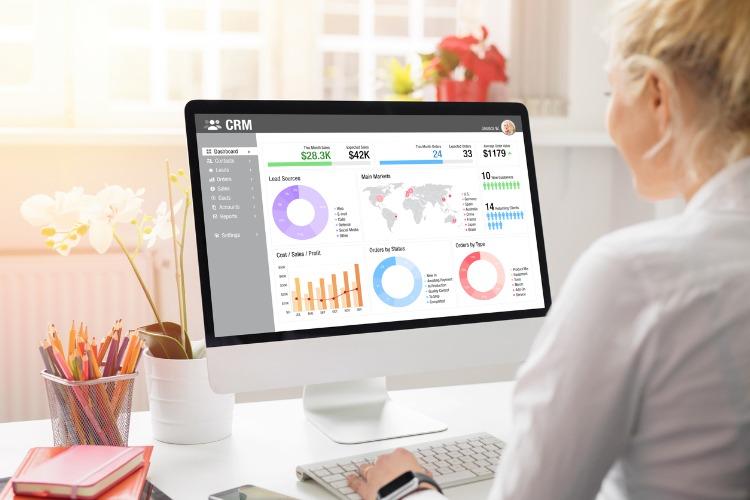Customer Relationship Management (CRM) Development: Definition, Benefits and Costs
Relationships are the foundation of business, particularly those with clients. Your company will expand more if it can handle client interactions better. Understanding CRM's (Customer Relationship Management) advantages is essential to this procedure.
To succeed, a company must attract new clients while retaining its current clientele. This entails interacting with clients via a variety of platforms and channels. Managing such connections and interactions becomes increasingly important as new ways to reach more consumers are opened up.
CRM Development: What Is It?
CRM systems include a broad range of software designed to facilitate contact between businesses and their clientele. CRM software helps improve lead conversion rates, strengthen customer connections, and expedite sales and customer care tasks.
This software is usually divided into three categories:
- analytical;
- operational;
- collaborative.
Operational systems utilize automation to enhance productivity; analytical systems gather and analyze consumer data to detect purchase trends; and collaborative systems provide a platform for sales, marketing, and customer care workers to exchange customer information.
What code is used to code CRMs? CRM developers should be knowledgeable in many coding languages to meet the expectations of their industry. A key component of CRM development is database programming, which is done using tools like Oracle SQL Developer for data modeling and languages like Java and Javascript.
Additionally, these engineers must be knowledgeable in object-oriented languages such as HTML5. They could also use scripting languages such as Perl or PHP. Software engineering technologies such as Eclipse IDE and Visual Studio IDE are often used by CRM professionals.
CRM development services may create solutions that satisfy an organization's goals for both customer service and profitability. These experts may use modules, add-ons, and plugins to improve the CRM infrastructures that are already in place. They could create their own apps or connect CRM software with apps from other companies.
CRM's Advantages
The work and effort invested in setting up a CRM system are definitely worth it. These are only a few of the advantages a CRM deployment will bring to your company.
Improved Client Relationship
Knowing a great deal about your prospect makes it much simpler to provide a favorable purchase experience. You have a significant advantage if you can quickly see every email, blog post, and ebook that they have opened and/or read, along with important information like the size, location, and vertical of their organization.
You may start off by adding additional value and personalizing your message.
Creased Output
Tasks like reporting, deal generation, call and activity tracking, and more may be automated with a CRM.
Representatives have more hours to spend in front of prospects the less time they spend on administrative tasks. You'll see a proportionate boost in income.
Enhanced Cooperation
Sales managers have real-time visibility over the methods and timing of their sales representatives' customer outreach and follow-up. When a sales development representative (SDR) has qualified and pursued an opportunity on behalf of an account executive (AE), the AE may promptly close the deal.
When salespeople are on the same team, they may share best practices and cover for one another when someone is ill or goes on vacation.
In essence, a CRM increases the productivity and teamwork of reps.
Deeper Understanding
Give up worrying about your salespeople's performance. In addition to providing you with a broad overview of representative performance, a CRM may also provide you with specific details like average deal size, deal velocity, and team- and individual-level conversion rates per deal stage.
With this knowledge of what's effective and what may be improved, just think of what you might do.
What is the Price of Developing a CRM System?
The cost of developing a custom CRM mostly relies on how many and how sophisticated features you want. There are other costs, such as project management and quality assurance, in addition to development. These usually make up between 15% and 30% of the entire cost of developing CRM software.
Nevertheless, hiring a qualified project manager and a quality assurance expert may save you money in the long term. They help avoid scope creep and the need to fix problematic code, which may incur additional costs.
The price of your development team may vary according to their area of specialization and experience. For instance, the cost of an Eastern European team is approximately three times lower than that of American engineers.
Custom CRM development usually costs between $50,000 and $300,000. Since the range is wide, it is important to contact one of our staff to discuss the details of your project before we can give you a precise quote.
Bottom Line
Most CRM systems are designed with an easy-to-use interface that can be accessed by anybody without any coding experience. This allows users to handle their customer contacts efficiently and rapidly, making it possible for people with little technological expertise to make the most of CRM systems.

